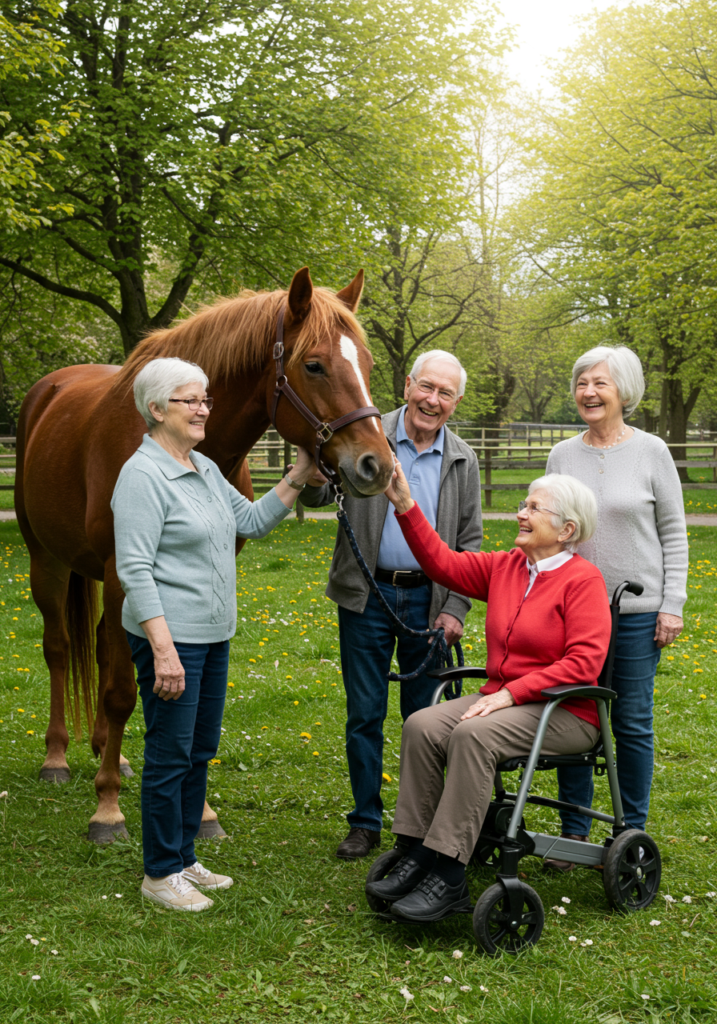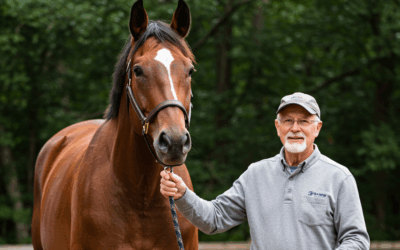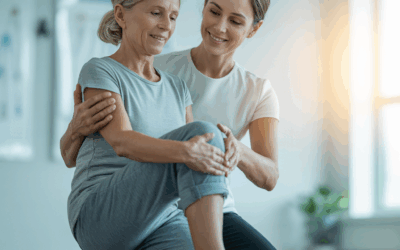The Therapeutic Power of Horses: How Equine-Assisted Learning Benefits Seniors
Imagine improving mental health, fostering social connection, and experiencing a sense of calm, all while bonding with a horse. A recent study from the University of Arizona uncovers how equine-assisted learning (EAL) programs in assisted living facilities are helping seniors rediscover joy and connection. Here’s everything you need to know about this innovative approach to wellness.
What Is Equine-Assisted Learning?
Equine-Assisted Learning (EAL) involves guided interactions between humans and horses, offering opportunities for personal growth, emotional bonding, and physical relaxation. For seniors, these sessions are tailored to create a calming yet stimulating environment to enhance well-being. This study focused on residents at an assisted living facility who participated in four guided sessions of “Hand Grooming,” a simple yet impactful activity of stroking horses while practicing mindful breathing.
Key Findings from the Study
Conducted over four sessions at The Hacienda at the River in Tucson, Arizona, the study revealed profound benefits for both seniors and horses. Here are the highlights:
1. Increased Engagement Without Stress: Human participants showed heightened heart rate (a sign of arousal) without significant stress responses during interactions. Their feedback was overwhelmingly positive, with participants reporting feelings of connection, calm, and happiness.
2. Bonding Through Physiological Synchrony: In two-thirds of the sessions, seniors’ and horses’ heart rate variability (HRV) rhythms synchronized, indicating a deep, non-verbal connection. This alignment suggests a unique form of emotional bonding.
3. Encouraged Social Interactions: Participants became more expressive and socially engaged with both humans and horses, showcasing the program’s potential to reduce social isolation, which is a common challenge in assisted living.
Why Horses?
Horses are particularly sensitive to human emotions, making them excellent partners for therapeutic interventions. They provide non-judgmental companionship and require participants to be fully present, fostering mindfulness and emotional attunement.
Benefits of EAL for Seniors
• Boosted Mental Health: Participants used positive words like “connection,” “relaxed,” and “happy” in exit interviews, underscoring the uplifting impact of the sessions.
• Improved Social Connection: The program helped break down barriers, encouraging seniors to engage with facilitators, peers, and the horses themselves.
• Safe and Stress-Free: The study confirmed that horses experienced no stress during interactions, ensuring mutual benefit for all involved.
How to Bring EAL to Your Community
Integrating equine-assisted learning into an assisted living community can be transformative. Programs like these can be customized to the needs of residents, ensuring accessibility and safety while providing opportunities for joy, relaxation, and connection.
Final Thoughts
This study highlights the incredible potential of equine-assisted learning to improve the quality of life for seniors. Whether fostering a sense of purpose, promoting social interaction, or simply offering moments of peace, horses are proving to be powerful partners in wellness.
For more information on this article click here










